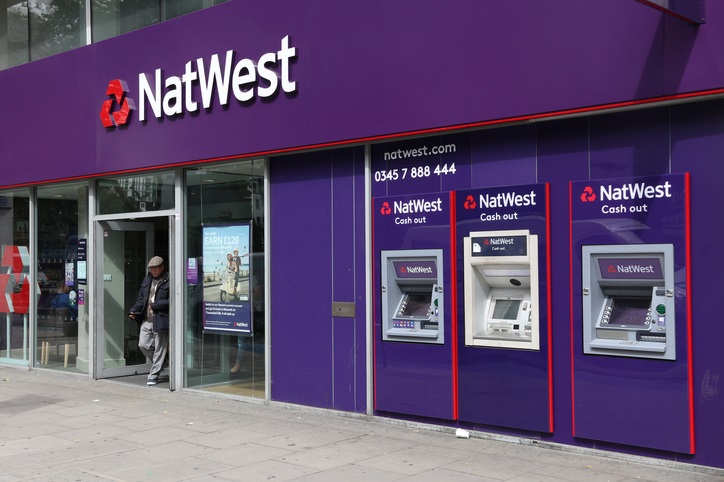NatWest bounces back to post £4bn profit
18th February 2022 08:20
by Richard Hunter from interactive investor
The bank has recovered after suffering a £481 million loss in 2020, says Richard Hunter, as he reports on the 2021 numbers, including an increase in the final dividend and a share buyback.

Another period of growth in the final quarter has sealed a successful year for NatWest (LSE:NWG), with the release of provisions for bad debts being a major driver.
Operating profit for the year of £4 billion compares to a loss of £481 million the previous year, and much of this significant swing was enabled by a net impairment release for the period of £1.3 billion. The CET1 ratio, or capital cushion, stood at an extraordinary 18.2% at the end of the period, with a liquidity coverage ratio of 172% not only underlining the strength of the bank’s capital position, but also that there is something of an embarrassment of riches to be considered.
There are certainly plans for this excess. Paying down a government stake, which currently stands at 53% is a painful but necessary drain on capital, but it is also one which the bank is comfortably able to afford. Indeed, the announcement of a further share buyback programme totalling £750 million is further proof that NatWest intends to deploy excess monies where possible in shareholder returns. Along these lines, the increase of the final dividend to 7.5p now implies a yield of 4.4%, which is not only punchy given the interest rate backdrop, but also significantly marks a return to the level being paid pre-pandemic.
Meanwhile, further investment in the digital business will continue to allow a capital light method of expanding services, which in turn should positively impact the cost/income ratio. There are already around 60% of current account customers using the digital route, and ongoing expansion should also enable a further trimming of costly branches where possible. The cost/income ratio has improved slightly to 73.4% from 74.4% a year earlier, boosted in part by the bank achieving its targeted reduction of group costs for the year by 4%.
This ratio is one of the few niggling numbers within the results. Another is to be found at NatWest Markets where, amid the current restructuring income fell by 61.5%, largely due to ongoing weakness in the Fixed Interest business. Elsewhere, for the group overall the increase in customer deposits works against what would otherwise be more profitable lines of lending.
However, other key metrics are showing a positive direction of travel, with an improvement in the last quarter to the Net Interest Margin a hopeful sign of things to come, a marginal hike in Net Interest Income and a Return on Tangible Equity number of 9.4% close to the level which the bank is aiming for. Meanwhile, fourth-quarter income was in line with expectations and operational expenses fell by more than expected, with the implication that this momentum should follow through to the new year.
- Our outlook for 2022: key topics and investment ideas for the year ahead
- Watch our share tips here and subscribe to the ii YouTube channel for free
With net lending having increased by 2.6%, propelled by strong mortgage growth and with the rising interest rate tide generally lifting all banking boats, NatWest seems set fair for further progress. Apart from the further strength in the mortgage book, there has also been something of a return to unsecured lending growth, underpinning the improved income figure.
Against this backdrop, the shares have seen a rise of 35% over the last year, as compared to a gain of 14% for the wider FTSE 100. Meanwhile, the movement of the market consensus of the stock to a buy marks a slight improvement to the one in place at the end of the third quarter, and seems in line with NatWest’s own measured progress.
These articles are provided for information purposes only. Occasionally, an opinion about whether to buy or sell a specific investment may be provided by third parties. The content is not intended to be a personal recommendation to buy or sell any financial instrument or product, or to adopt any investment strategy as it is not provided based on an assessment of your investing knowledge and experience, your financial situation or your investment objectives. The value of your investments, and the income derived from them, may go down as well as up. You may not get back all the money that you invest. The investments referred to in this article may not be suitable for all investors, and if in doubt, an investor should seek advice from a qualified investment adviser.
Full performance can be found on the company or index summary page on the interactive investor website. Simply click on the company's or index name highlighted in the article.